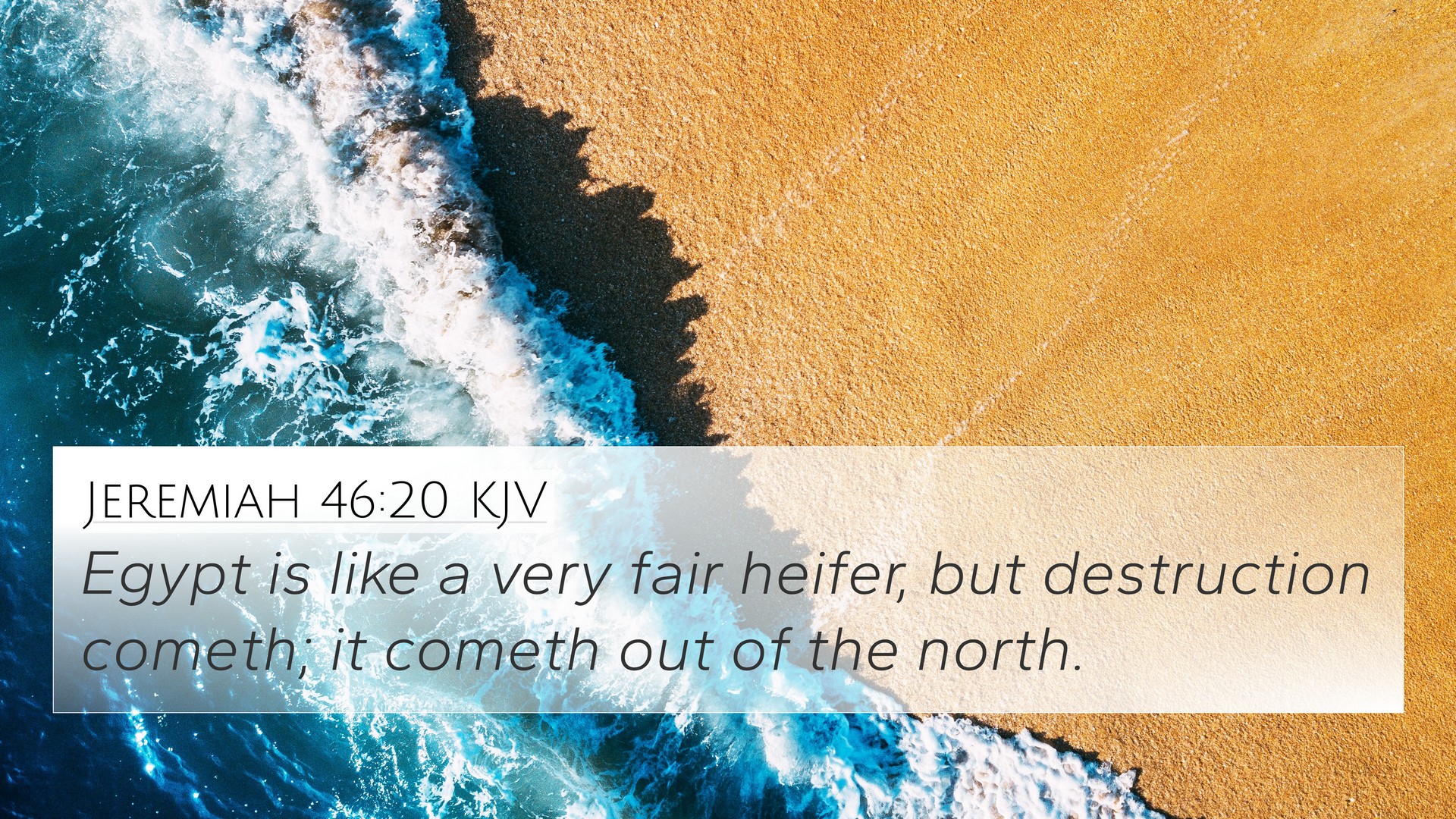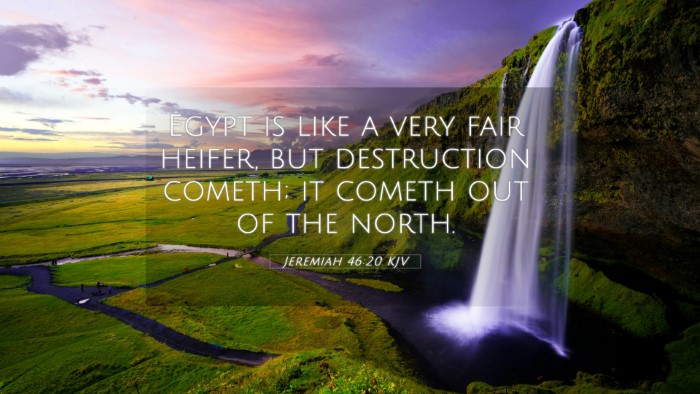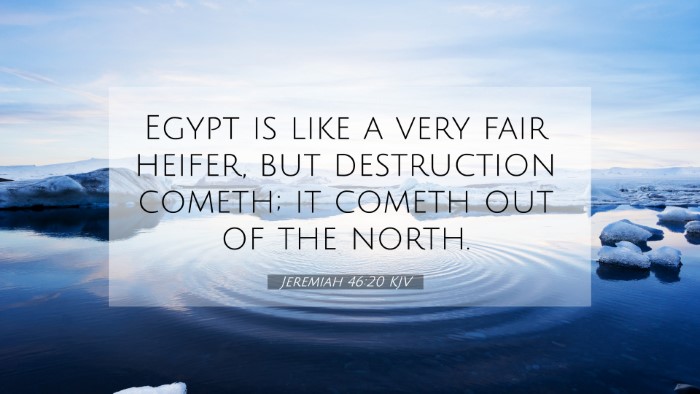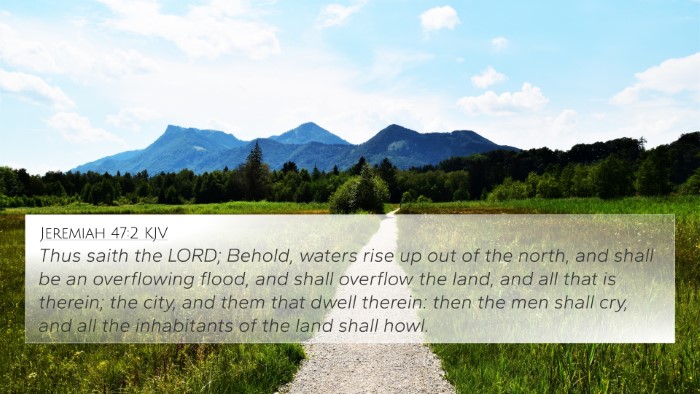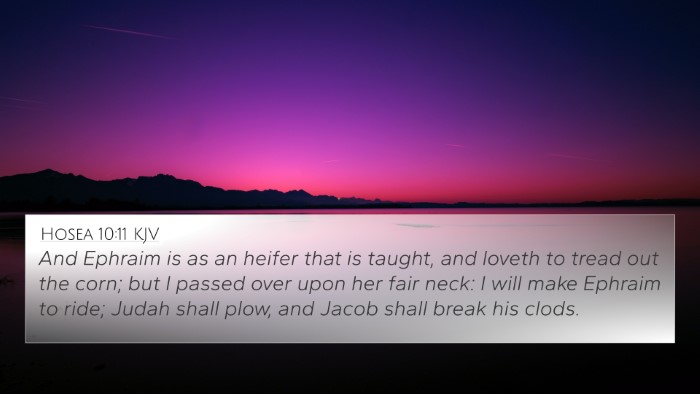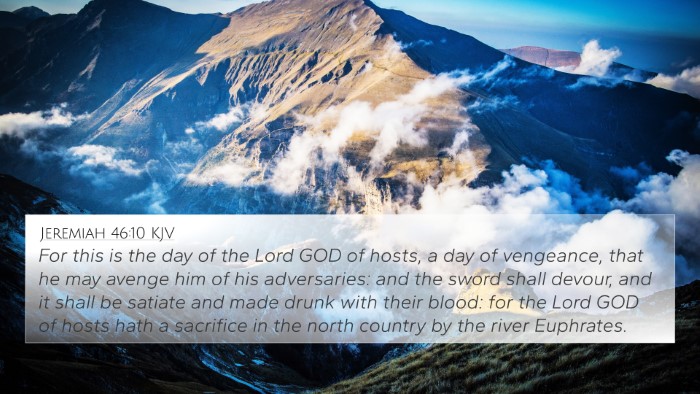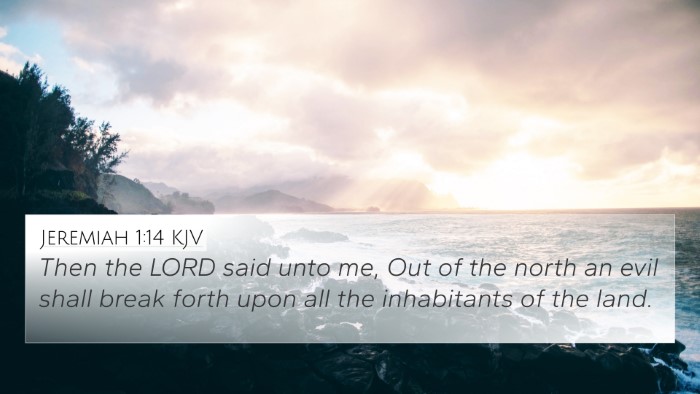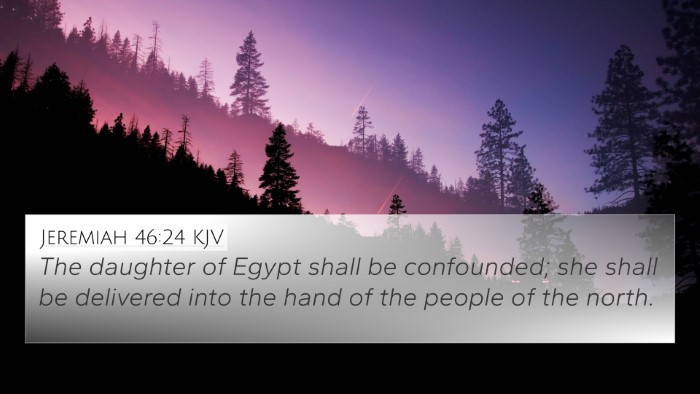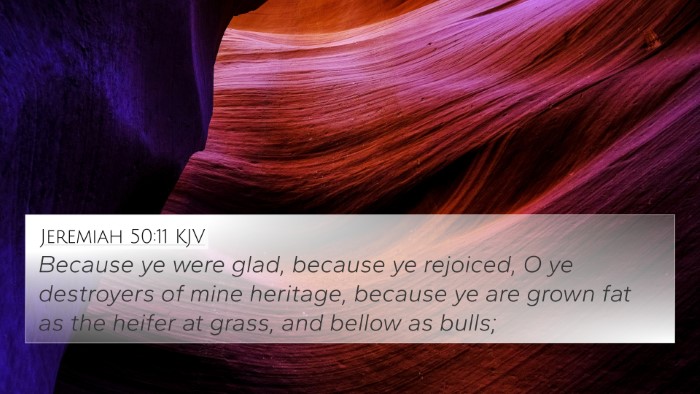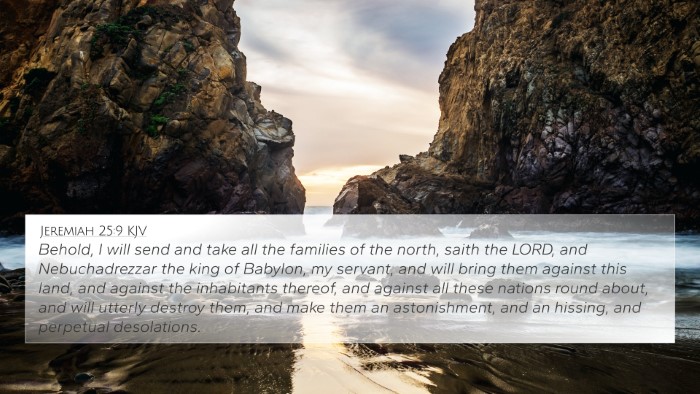Understanding Jeremiah 46:20
Jeremiah 46:20 states: "Egypt is like a very fair heifer, but destruction cometh; it cometh out of the north." This verse serves as a metaphorical portrayal of Egypt, suggesting its beauty and strength while foreshadowing its impending doom. Below, we explore various interpretations and thematic connections from well-known public domain commentaries.
Summary of Insights from Commentaries
The verse acts as a significant prophetic utterance regarding Egypt's fate, describing it in various dimensions:
- Matthew Henry:
Henry notes that Egypt's description as a "fair heifer" illustrates its outward splendor and strength, suggesting that while Egypt appears prosperous, it is ultimately vulnerable to God's judgment. The impending destruction is meant to awaken the people to their need for repentance.
- Albert Barnes:
Barnes interprets the "heifer" metaphor as Egypt's previous glory and its role as a dominant power in the region. However, he emphasizes the critical message: despite this stature, a great calamity is imminent, symbolizing that worldly strength is no match for divine plans.
- Adam Clarke:
Clarke expands on the metaphor by suggesting the heifer represents the ease and beauty of Egypt’s existence prior to its destruction. He stresses the importance of recognizing the short-lived nature of such splendor in contrast to the eternal nature of divine judgment.
Thematic Connections
In understanding Jeremiah 46:20, several thematic connections and cross-referencing insights emerge:
- Prophetic Judgment: The imagery of destruction aligns with themes found in other prophetic books, particularly regarding nations that oppose God's purposes (Isaiah 19:1-2).
- False Security: The verse links to the idea of illusory safety seen in texts like Ezekiel 30:18, where Egypt is pronounced as doomed despite its strength.
- Divine Sovereignty: The underlying message reflects God's sovereignty over nations (Proverbs 21:1), reminding readers that human authority is subject to divine will.
- Destruction from the North: This phrase resonates with other prophecies concerning invasions from the north (Jeremiah 1:14), emphasizing the inevitability of judgment.
Bible Cross-References
Here are several Bible verses related to Jeremiah 46:20, illustrating the interconnected nature of Scripture:
- Isaiah 19:1-2 - A prophecy against Egypt highlighting their judgment.
- Ezekiel 30:18 - Provides insight into the destruction decreed over Egypt.
- Jeremiah 1:14 - Discusses the coming judgment from the north.
- Isaiah 47:1-3 - Another portrayal of Babylon's downfall that reflects themes of impending doom.
- Lamentations 1:1-2 - Illustrates the desolation that can come upon nations.
- Zephaniah 2:13-15 - Describes the fate of nations that oppose God, including Egypt.
- Daniel 11:40 - Talks about end-time powers from the north impacting Egypt.
Practical Application and Reflection
The study of this verse encourages readers to contemplate the fleeting nature of worldly power and emphasizes the importance of aligning oneself with God's will. Tools for Bible cross-referencing can greatly enhance understanding by linking verses that address similar themes, such as:
- Bible Concordance: A helpful resource for finding related themes and verses quickly.
- Bible Cross-Reference Guide: Guides that help illustrate connections between scriptures.
- Cross-Reference Bible Study: Methods that promote deeper understanding using interconnected texts.
Conclusion
In summary, Jeremiah 46:20 serves as a powerful reminder of the fallibility of human strength and the certainty of divine judgment. By utilizing Bible cross-referencing tools, readers can enhance their understanding of this verse and its connections to other scripture, offering a richer Biblical experience.
